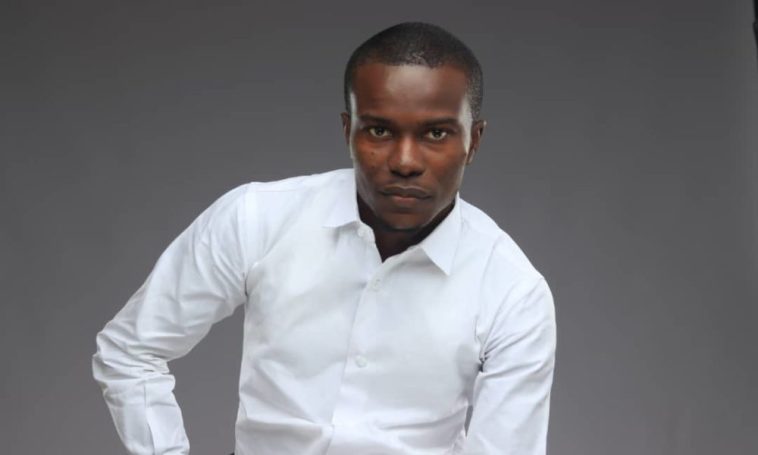On December 10th this year, Nigeria will join the rest of the world to mark Human Rights Day. As expected, I already envision our favourite intellectuals churning out think pieces; law enforcement agencies putting out ideal messaging, not forgetting the performative activists, and then the pearl-clutching and virtue-signalling from our political class. If you were to visit Nigeria for the first time that day, you could swear that we were the bastion of human rights and the defenders of civil liberties for the free world. Everyone and their ekuke will not fail to pontificate and prognosticate on that day.
Then reality hits you. One of the worst things to be in Nigeria is not being connected. You must have a plug for everything especially with jurisprudence because the favourite pastime of the so-called big man in Nigeria is trying to put someone he considers inferior in their place. That usually includes the use of connections to show the unfortunate victims a sufficient amount of shege for effect. It’s the first lesson in the school of hubris, the idea that a person has to break the law or oppress someone else to validate his or her socio-economic status. This is one of the reasons some so-called powerful people cannot live in more civilised countries, especially in the global north. Not because of the snow, it’s just a terrible idea for them to be in a place where they cannot play the do-you-know-who-I-am card.
Law enforcement officers should ordinarily be the paragon of patriotism and a sliver of them are but a majority of them aren’t. It’s a sad commentary to note how their collective capabilities have been degraded; law enforcement officers to a large extent are not seen as friends of the people but as pawns in the hands of the supposed high and might in society – the irony of their overzealousness to run errands for a political class that doesn’t prioritise their welfare is not lost on me. Using people in uniform to settle civil disputes has now become an unfortunate signature of the times. If someone with money and connections feels you have wronged him or her, all they have to do is make certain calls and get some people in uniform to pick you up and lock you up.
I think many people don’t think that libel and slander are meant to be resolved through the judicial system. I also don’t think it’s widely known that warrants have to be issued by a court of competent jurisdiction and if anyone is arrested without such a warrant, it effectively becomes a case of kidnap whether or not the perpetrators are in uniform because it means a person is taken against his or her will – thereby infringing on freedom of movement. However, it has become so commonplace that people are arrested without warrants, and locked up indefinitely without being charged – hence the infinite number of awaiting trial cases in our prison system.
I say this with much thought, the studied silence of those that are supposedly enlightened is deafening. Especially those who hug the title of being ‘elders’. When young people say or do things that are believed to be out of line, we are quickly chastised by these residents of the famous moral high ground and riders of high horses. We are reminded that such behaviour is not part of our culture and the sermons on how we should respect our sacred traditions would be endless. I ask: is bullying and intimidating fellow citizens part of this rich culture of ours? Are these the lessons we should be learning from these exemplary people? Should young people grow up with the education that once a person has money and power, it can be used to deal with someone they don’t agree with? Got it.
There is a reason why younger people take much of our history with a pinch of salt because quite frankly, huge swathes of it are lies and propaganda. The idea that some people claimed to fight for democracy, especially against the military governments of the day is a joke. We have long seen through the smoke and mirrors, that these people never cared about democracy, all they wanted when in opposition was power. The civil rights industrial complex has been thoroughly exposed for the fraud that it is; they only fight for democracy when their paymasters feel politically disadvantaged but are on vacation when egregious acts of civil rights infringement are perpetuated against ordinary citizens. Democracy, unfortunately, has become one of those buzzwords certain people name-drop in a sentence when they want to project their pro-people stance. It has also become a cover to commit all sorts of atrocities because their argument has always been, “the worst form of democracy is better than any other kind of government”.
These are not proponents of egalitarian societies but people who believe that there are rules for thee but not for me. How do you explain that law enforcement agencies are quick to brandish the faces of average Nigerians for crimes they may or may not have committed but when certain people in power are indicted on grand larceny, such people suddenly become nameless? Has justice official become the exclusive preserve of the elite? Doesn’t it stand logic on its head when people are arrested and detained first, then the investigation comes after? Shouldn’t it be the other way around? It’s interesting that security agencies can headhunt innocent citizens but somehow cannot find terrorists or corrupt public officials who are also protected by security agencies. When law enforcement officers are being used to break the law isn’t that a recipe for anarchy? Is this Gestapo approach to resolving civil disagreements now the norm and should Nigerians brace for impact? Is threatening to shoot innocent citizens with the audacity that “nothing will happen” now the official protocol of law enforcement officers and security agencies?
Somehow, this tomfoolery that is ongoing doesn’t demarket Nigeria but it’s the comments of some random citizen that will demarket Nigeria? It’s a delusion for me; the thought at the very least foreign investors don’t have internet access and the happenings in Nigeria are not known to them is comical, to put it politely. I dare say that most external interests know Nigeria more than most Nigerians know their own country; there is a reason they share evacuation notices with their citizens before our security agencies do. A lot of them run reconnaissance and have local intelligence on happenings in our space. Foreign direct investments don’t magically flow into countries, it doesn’t happen because those people love Nigeria – amongst other causalities, it is driven by the prospects of a stable socio-political environment and the strong presence of an intangible asset known as the rule of law. It doesn’t help when they read that an investigative journalist is detained by security agencies for uncovering crimes but the actual criminals are walking free. Neither is it good optics where people are summarily arrested because someone somewhere with some power wants to prove a point nor that certain buildings are demolished because the owners are of a different political persuasion.
There is a reason why free speech is increasingly on the ballot all across the world. The attempt to silence dissenting voices has been met with stiff resistance in many of the world’s leading democracies. People who tried to censor citizens and political opponents have been thoroughly humiliated and rejected at the polls. Democracy is supposed to be a system of government where the majority have their way but the minority necessarily have their say. People who cannot take the heat should have no business being in the kitchen, such people are genuinely shocked that with all the wealth and power they have illicitly amassed, they are not being worshipped by everyone.
Nigeria is such an interesting place, some people will commit the most atrocious acts then when they are in the twilight of their lives, they disingenuously try to rewrite history. I am very excited about the digital age, history is being documented in real-time. It’s in Nigeria that we use titles recklessly when you hear that certain leaders are described as master strategists – you would immediately assume such leaders have hacked good governance, raised the human capital development index and effected pro-people policies that have raised the quality of citizens’ lives. However, in Nigeria, we use such titles to describe people who can ‘win’ elections one way or the other, settle political cronies and plot how to perpetuate themselves in power by infiltrating institutions while leaving the population worse off.
A great man once said in one of his legendary songs, “Observation no be crime”. I love legitimacy so much and it gladdens my heart that there is a marked difference between power and authority. No matter how leaders with small minds use big positions to mask their shallowness, people will always see through it. Soft power is when a person can influence others without the use of coercion and force, for some of us, it will be a cold day in hell before co-sign any such aberrations. Anybody can grab power by any means but you see that little thing called legitimacy? If e didn’t dey, e didn’t dey!
Now available in select bookshops and on my Selar Store – get your hands on my brand new book, Hope Is Not A Strategy; Faith Is Not A Business Model – Mfonobong Inyang is a creative genius who works with top individuals and institutions to achieve their media, tech and communication goals. He is a much sought-after public speaker and consummate culture connoisseur who brings uncanny insights and perspectives to contemporary issues. As a consummate writer, he offers ghostwriting, copy-writing and book consultancy services. A master storyteller that brilliantly churns out premium content for brands on corporate communications, book projects, scripts and social media. A graduate of Economics – he speaks the English, Ibibio, Yoruba, Igbo and Hausa languages. He appears to be a gentleman on the surface but the rumours are true – he get coconut head! Reach out to me let us work together on your content project(s) – [email protected].





GIPHY App Key not set. Please check settings